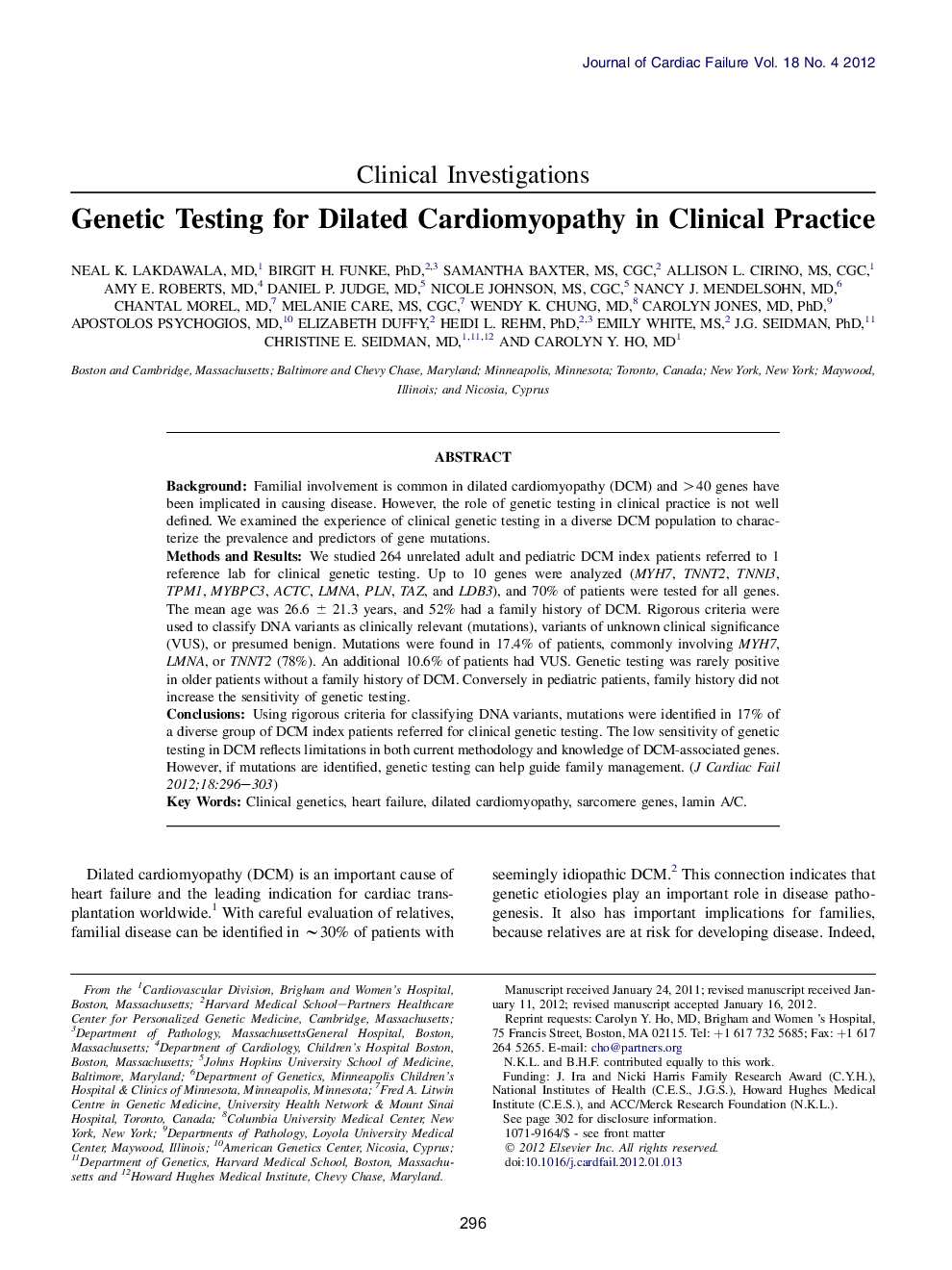| کد مقاله | کد نشریه | سال انتشار | مقاله انگلیسی | نسخه تمام متن |
|---|---|---|---|---|
| 2960710 | 1178367 | 2012 | 8 صفحه PDF | دانلود رایگان |

BackgroundFamilial involvement is common in dilated cardiomyopathy (DCM) and >40 genes have been implicated in causing disease. However, the role of genetic testing in clinical practice is not well defined. We examined the experience of clinical genetic testing in a diverse DCM population to characterize the prevalence and predictors of gene mutations.Methods and ResultsWe studied 264 unrelated adult and pediatric DCM index patients referred to 1 reference lab for clinical genetic testing. Up to 10 genes were analyzed (MYH7, TNNT2, TNNI3, TPM1, MYBPC3, ACTC, LMNA, PLN, TAZ, and LDB3), and 70% of patients were tested for all genes. The mean age was 26.6 ± 21.3 years, and 52% had a family history of DCM. Rigorous criteria were used to classify DNA variants as clinically relevant (mutations), variants of unknown clinical significance (VUS), or presumed benign. Mutations were found in 17.4% of patients, commonly involving MYH7, LMNA, or TNNT2 (78%). An additional 10.6% of patients had VUS. Genetic testing was rarely positive in older patients without a family history of DCM. Conversely in pediatric patients, family history did not increase the sensitivity of genetic testing.ConclusionsUsing rigorous criteria for classifying DNA variants, mutations were identified in 17% of a diverse group of DCM index patients referred for clinical genetic testing. The low sensitivity of genetic testing in DCM reflects limitations in both current methodology and knowledge of DCM-associated genes. However, if mutations are identified, genetic testing can help guide family management.
Journal: Journal of Cardiac Failure - Volume 18, Issue 4, April 2012, Pages 296–303